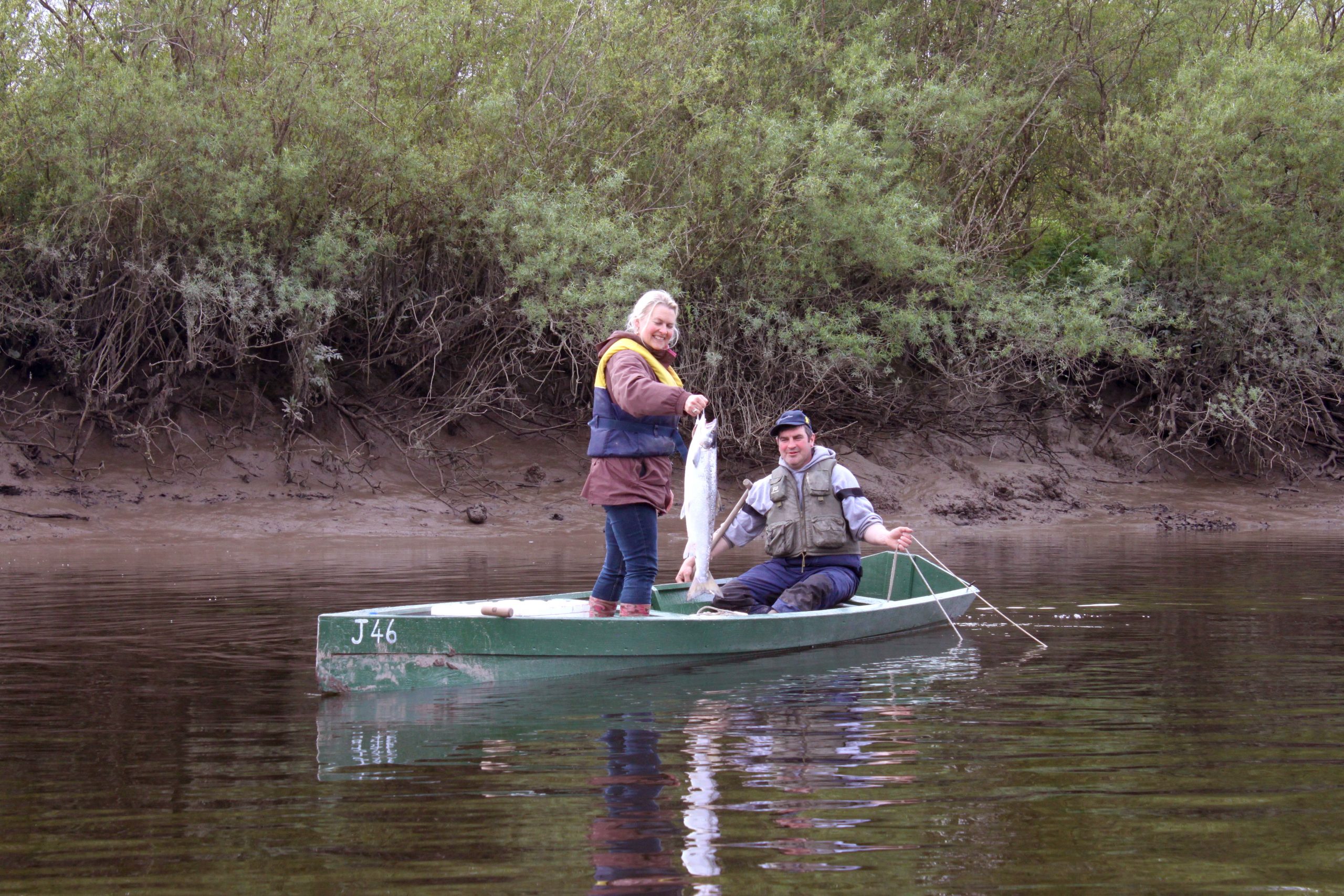
It is very hard to believe that in times gone by, wild salmon was the food of the poor people. Not only here in Ireland, but also in London for example, where the servants of aristocratic households sighed when they had to eat wild salmon from the River Thames, again. Those times are long gone.
Today, Wild Irish Salmon is a rare delicacy. What changed in the meantime?
If we had to summarise it in just one word, it would be – overfishing.
Up until 2006, wild salmon in Ireland could be fished with big, long drift nets cast from trawlers off the Irish coasts.
When the salmon returned after years of roaming the Atlantic, they came back to lay their own eggs in the exact same rivers where they hatched. Unfortunately, most of the salmon was caught by the big trawlers before they even made it into the estuaries of the rivers. Only a small number of eggs were laid, the population of wild salmon dwindled rapidly.
This worrying issue caused one, and accelerated another, development. One was the ban on drift net fishing which made sure that the wild salmon was actually able to return to the top of the rivers and reproduce.
The other one was the establishment of aquaculture as a means to sustainably produce salmon. Today, almost all salmon aquaculture in Ireland is organically farmed. The big cages in the open Atlantic waters are covered in nets so that no predators can get in and no salmon can escape.
After years of absolutely no wild salmon fishing in Irish waters, small outfits were allowed again in 2011 to fish salmon under strict conditions. One of them is that they have to fish in the rivers, with traditional methods like snapnet fishing. Also, fishing is only allowed during a few short months in summer from around May to August, and only on certain days of the week. Numbers are heavily restricted, and every legally caught salmon will have a tag with a registered number on it.
With the reduced number of available wild salmon, the demand is focusing on very few fish compared to what the quantities used to be. This of course results in an increase in prices.
The taste of Wild Smoked Salmon is another factor. Similar to wine, where we can sometimes taste the terroir, we can taste the “rivoir” in wild smoked salmon depending on what river the salmon was caught in.